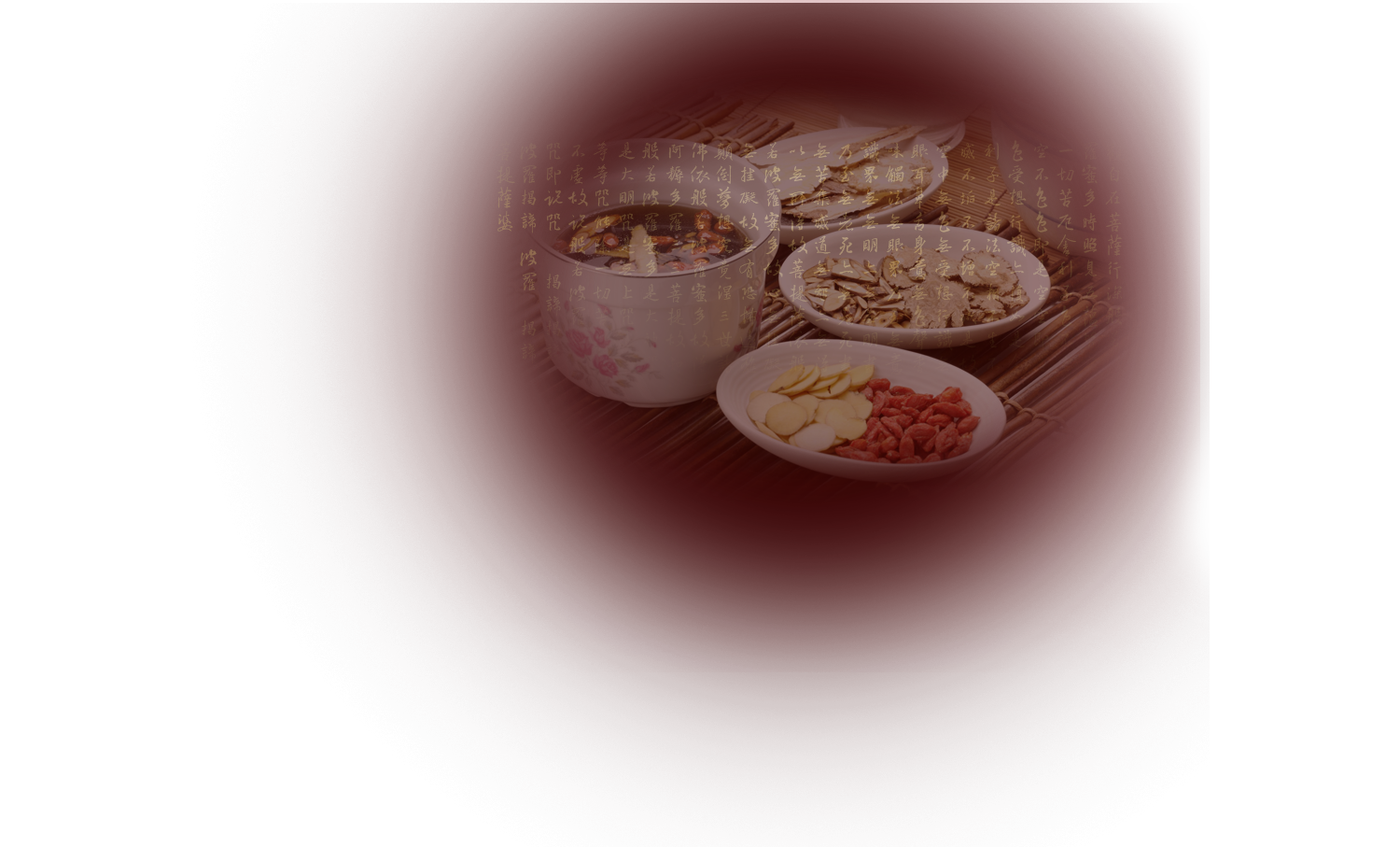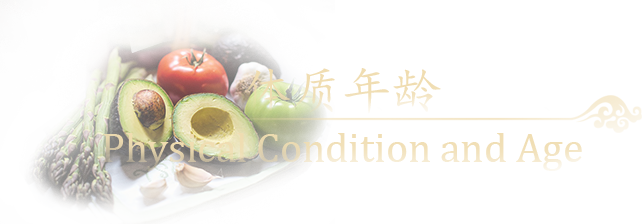

Physical Condition and Herbal Dietary Therapy: To determine the most appropriate menu for an individual, TCM distinguishes individuals according to the different body constitutions such as those of excess or deficiency, or cool, hot or medium in nature, which is determined by an examination of the tongue, pulse, and meridian system. Various pathological conditions arise from a patient's excess, deficient, cool or hot nature.
- Cool-type people often suffer from poor circulation, poor appetite, loose stools, pale tongue, slow or moderate pulse, fatigue and sexual dysfunction. For cool-type people, a TCM practitioner would recommend foods that are warm or hot in nature, such as fresh ginger, green onion, radish, green or red pepper, red date, walnut, mutton, beef, and common fennel fruit. These dispel cold and restore energy. People who feel fatigue, shortness of breath, dizziness, and weakness, with pale tongues and weak pulses are considered deficient types, and warm foods that tonify the body are preferred, such as red meat, egg, fish, tofu, beans, green vegetables, avocado, apples, and oranges.
- Hot-type people, on the other hand, are more likely to suffer from constipation, hot flashes, and stress, and have a red tongue, rapid pulse and sweat easily. TCM practitioners would recommend food that are cool or cold in nature, such as mung bean, lotus, watermelon, pears, water chestnuts, purslane, duck, freshwater fish, honey, and chrysanthemum flower, which can purge fire, clear heat from the blood and detoxify the body and thus should be avoided by cold-type people. Duck, freshwater fish, clams, honey, green beans, Napa cabbage, winter melon, cucumber, tofu, watermelon, pears, banana, kiwi, wheat, corn and other foods with a cool nature, can be used to clear the heat and fire, and detoxify the body.
Age and Herbal Dietary Therapy: A preventive herbal dietary plan is determined by the nutritional and energetic needs and eating habits, according to specific age groups.
- Children are usually at the stage of their greatest development and the most active period of metabolism, yet their digestive functions are not fully developed and thus have comparatively less absorptive abilities. Hence for children, a special diet such as oxtail and bones rich in marrow can encourage good bone structure and brain cell growth.
- Adolescents are at a time of both physical and mental growth. While they have enough vitality, they have a tendency to overuse their bodies. In addition, tension from studying could also cause insomnia or even neurasthenia. Pork liver, beef, eggs, and milk are all helpful in tonifying the kidney and brain during adolescence. Adolescents should stay away from hot, spicy, or excessively sweet or oily foods, which can cause acne and emotional ups and downs, which are the plague of so many teenagers.
- Adulthood is likely to accompany busy lifestyles in which women face menstruation, pregnancy, and maternity. The body consumes a great deal of energy and is susceptible to anemia. Chicken, beef, dairy products, and seafood contain a high dose of protein and should not be avoided.
- Pregnancy: A special diet for pregnant women is highly advised by many TCM practitioners and should change with the different stages of a woman's pregnancy. After delivering the baby, a patient on a special diet will produce more milk for breast-feeding and enjoy a speedy physical recovery.
- Middle-aged patients experience more responsibilities in their public and private lives as they often have to support the old and the young. Stress from family and work can lead to gradual degeneration. Consequently, sexual function of middle-aged men usually declines. For people of this age range, tonifying and regulating their body energy is essential for sustaining good health later in life. A special diet can encourage relaxation, decrease stress, enhance sexual function, enhance energy level, and slow aging.
- Elderly: When people mature, the functions of their organs degenerate, and resistance to disease diminishes. Graying hair, decreased alertness in the ears and eyes, sore back, weak legs, softened bones, and increased night urination are typical symptoms of this phase. Foods known to encourage healthy digestion and longevity are best for patients who are 55 years or older.
